Cris Kirkwood is the bassist for the Meat Puppets, which released the indie rock classic albums Meat Puppets II in 1984 and Up on the Sun in 1985. They hit their commercial peak with 1994’s album Too High to Die, which featured the minor hit “Backwater.” Their visibility was helped immensely around this time by Kurt Cobain proclaiming the Meat Puppets to be one of his biggest influences, and by brothers Curt and Cris Kirkwood joining Nirvana onstage at their MTV Unplugged performance of three songs from Meat Puppets II. But things crumbled shortly thereafter, in large part because of Cris’ escalating substance abuse problems.
This interview was conducted over the phone on 1/8/09, and formed the basis of a preview article for the Meat Puppets concert at SOhO. Be sure to read Cris’ hilarious answers to “The MOJO Questions” at the end.
Jeff Moehlis: Describe from your perspective how the Meat Puppets’ music has evolved over the years.
Cris Kirkwood: Ultimately, it’s always been just the Meat Puppets’ music. The way that it has evolved is in the way that art can develop as an artist grows, as a person grows. So it has grown up with us in a lot of ways.
One of the things we were always on about as a band was doing whatever we wanted to do. That’s one of the reasons we got into art as opposed to medicine or something, you know? I think that we intentionally gave ourselves a lot of latitude in terms of style, you know the colors that we wanted to put on our palette, if you will. From the get-go, we were going to do exactly what we wanted to do, and I think that we’ve continued to do that. So in a lot of ways there has been that as a mainstay of what the Meat Puppets have been about musically.
Stylistically, if you want to get specific about it, you could say that song has a country-western feel, this one has screaming on it so it has a screaming feel, or this one’s a little heavier. But those are all just different “feels” that we found interesting and wanted to visit, so we did.
Beyond that, we have gotten old and ugly, and hopefully so has our music. [laughs]
JM: Do you think growing up in the Phoenix, Arizona area somehow affected your music?
CK: I think that’s one of the things you can look at from that last answer – where were we coming from, that we would allow ourselves that kind of leeway? In a lot of ways that’s commercial suicide, right? One of the things that the industry has proven is that people like to categorize things, and that specifically one of the ways to succeed in the music industry is to be the popular representative of a particular style. Coming from a place that was so non-music industry oriented – Phoenix just wasn’t – I think that we were very self-indulgent and allowed ourselves to treat it like an art project, you know our own little world. We’re doing this because we want to do it, regardless of what the industry dictates. We didn’t even think of it in those terms, it’s the kind of people that we were, because of growing up here to a certain degree. There were definitely certain elements of living in Phoenix. It’s out in the middle of the desert, in the middle of a really lovely desert. When we were kids it was a much, much smaller city. It just had it’s own unique feel. That’s one for the sociologists to a degree – is it nature or nurture. It seems it’s obviously a little of both. So it’s the kind of people that we are, and the kind of environment that we grew up in as well.
JM: Your early albums were on SST Records during its golden age. [SST also released groundbreaking albums by Husker Du, the Minutemen, Sonic Youth, Dinosaur Jr, and others.] What was it like being on that label at that time?
CK: Oh, it was fun! One of the things that was cool… it became apparent once you got to know those guys, and they asked us to record with them, and once you got to know the other bands on the label, and saw what else was they had on there, that the guys in Black Flag – they’re not just signing bands that sound like them, they’re actually going out and finding these bands that are considerably different from them in a lot of ways. And yet very unique. They were into signing unique bands. You look at something like The Minutemen or Husker Du, and you’re like, Jesus, you know, those are good bands! And then the Meat Puppets, well, you know, [we were] definitely unique. It was very cool. They weren’t in any way trying to do anything other than the bands that they liked to put out records, which worked out well for us. It was fun.
JM: One of your most beloved albums (and my personal favorite) is Up On The Sun. Do you have any cool memories about making that record?
CK: That’s definitely a neat record. One of the things about being on something like SST, where their main focus wasn’t strictly about the amount of records sold, is that they had somewhat of a limited budget. So that record was made really fast. But we’d already recorded most of that stuff at home. We’d actually figured that stuff out… pretty much entirely. So we were able to go into the studio and make it really quick. That’s a neat record. There are all sorts of cool memories about that particular record.
But there’s cool memories involved with each of the records. Each record is a nice little touchstone for me to be able to go back to and go, hmm, that particular point in my life.
Beyond that, each record also represents the combination of where you’re at as a person and how that affects your ability to make art and how you feel about the art later on, how you feel about it when you’re doing it, how other people feel about the art.
[For] that record, I can go, hmm, it had some neat ideas on there, and circumstances allowed it to come out and be a record that I was very comfortable with. But all of our records are. For all of the records I’m able to go, hmm, [I’m] very comfortable with [that]. You can go back and go, specifically I would have done this differently or I’d like to have done this differently, or it would have been neat if we could’ve gone in this direction, or I didn’t like that. You can always revisit your things in terms of some of the specifics, you know the recording circumstances, the amount of time we spent on it, the amount of money we spent on it. How much of a crap we gave about singing in tune, or whatever. But it’s more like a diary, or a tapestry that you can go back to and go, that particular point in my life – neat.
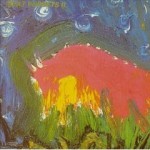
JM: Did the Meat Puppets ever make a concious decision that, “we don’t want this record to sound like the last record,” or did that just happen naturally?
CK: We didn’t do that. That’s more like where we were at as a person at that particular time. It was more, this is the next batch of songs that are available.
At a certain point it’s like, we don’t feel like going through this process to get this record done, we’re going to do this differently, or something like that. But specifically, going “we don’t want this record to sound like the last record,” no, we didn’t do that. We just trying to get the record done that we wanted to do at that particular point. They each stand on their own. Yet they each stand as a link in this wretched little chain that we managed to sew together over the years [laughs].
JM: You have done a lot of interesting covers of other people’s songs over the years. Which have been your favorites?
CK: They’re more like favorite artists that we struck upon. One in particular that comes to mind, considering that it’s his birthday, is Elvis. We way covered the Elvis canon, from some of the earlier things to a lot of the movie stuff, a lot of the middle-year Elvis movie things and
whatnot.
Then one of the other artists who we definitely were taken with was George Jones. We just did a ton of that guy’s material.
Why those guys? What it comes down to is, what does it take to get to be a George Jones or an Elvis? One, you’re a one-of-a-kind singer entirely. Both of those guys were at the top of their fields. And to be able to sing that good, you’re filled with whatever it takes to get to that kind of singing, you know the emotion involved, the musical acumen, or whatever. Once you’re up at that particular level you’re getting thrown really cool songs. Both those guys were the kind of artists that wants to do different songs that all over the place, that express different emotions, that visit different feels, and different areas of what it is to be. Their songs were just a blast to play.
But there’s all sorts of songs that have stuck out. Once again, it’s getting back to doing whatever we want to do. Occasionally a certain song will come up, and it’ll just be something that we’ll play for a
while. Some of the stuff actually has stuck around for years and years and years. It’s just like a part of us, like our own songs.
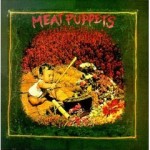
JM: There are a few surprises. Like on your first album, “Tumbling Tumbleweeds” is a surprising song to end up on what is essentially a hardcore album.
CK: Because the album wasn’t hardcore from our standpoint. It was just a Meat Puppets album. Once again, getting back to doing what the band felt like doing. That song in particular was a song that our mom had taught us. We didn’t come from a musical background at all. But mom, not intentionally, but mom had a few songs that her and Curt would sing when we were really little kids. And they were just like part of our childhood in some way, and one of them was “Tumbling Tumbleweeds.”
The other cover on that record is “Walking Boss” which is Doc Watson. Just another song that’s like, you know, that’s cool. Already at that point we had enjoyed playing whatever we felt like playing. There was some cover stuff that we liked to do at the time, and those two wound up getting recorded when we made that record. That’s us defining the parameters, you know, not in the other direction. We just didn’t feel like letting other people’s conceptions of what it meant to be a rock band or to be a punk band or whatever control us.
JM: There’s another cover, a bonus track on the reissue of your first album, “Franklin’s Tower” from Blues for Allah by the Grateful Dead, which isn’t necessarily the sort of song that one might have expected you to do at the time.
CK: We were very interested in doing just what we were interested in only. That’s why it’s art. That’s why we got into this. Because we’re self-indulgent, spoiled, horrible people [laughs].
JM: Well, it’s supposed to be fun, right?
CK: It’s supposed to be what we want it to be. There’s where it’s coming from. But it wasn’t just like, we’re going to do this because we’re going to do things the way we want to do them. It was also that this was the music that interests us, and what interests us is music and the music that we’re making. Once again, there’s another band, The Dead. We haven’t covered that much of their stuff specifically, but definitely a huge influence on the Meat Puppets. Stylistically to a degree, but maybe not that much, because those guys are really good players, you know. We’re OK players, but we’re talking about some really good players in The Dead. But definitely conceptually, where it’s just like, wow, what a broad palette or a broad spectrum of things to draw upon if you want to. Those guys definitely did. A lot of different feels, and very open-minded in their approach to music making. Definitely that was a big influence on us. Just the realization that other artists see things in the way that we do as well. That you can make whatever you choose to make as art your own.
I haven’t heard that though. Is it good?
JM: Yeah, it’s pretty cool.
CK: It’s [probably] way half-ass [laughs]. The words can’t be right. There’s just no way we could’ve gotten all the words of the song…
Those guys – they’ve got some good stuff, man. I still love The Dead. Wonderful, wonderful stuff. It’s just stunning. You know, really cool well-crafted songs, and then the ability to, like, as a group meltdown in such a crazy, cool way. And to get very experimental and yet still be listening to each other so well that it’s actually speaking one voice, and then to come back into things. It’s like, damn, you know?
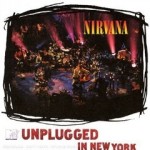
JM: You and your brother Curt played with Nirvana at their MTV Unplugged performance. How did that come about?
CK: Cobain was a big music fan when he was a younger guy, and I think he got way into the SST thing. There were a few tours, you know like Black Flag and us, definitely The Minutemen and some other things, that I think influenced the Seattle thing. At least him, I know that. The guy was definitely very much into the SST thing and very, very into the Meat Puppets, you know, as a younger guy. Then suddenly he was in the position of being a huge, huge pop star, and had been asked to do that Unplugged thing. Part of the influence that we had on him as an artist is like The Dead’s influence on us. You know, what do you think of your art? How do you view it? Part of the influence we had was to make any kind of artist who would want to use his new-found celebrity to expose people, his legions of fans – at they point they were the biggest band in the world – to stuff that he’d really been into. He asked us to do it, much to the chagrin of MTV.
JM: I imagine that they were hoping for more Nirvana hit songs. But I guess he was in a position where he could do what he wanted to do.
CK: The funny backstory that I heard later about this was that Nirvana told MTV that they wanted to have guests come on, and they were thinking someone like Eddie Vedder or somebody else that at the time was huge. The Meat Puppets were never that much of a commercial entity, not to that degree, definitely. MTV had hardly had anything to do with us at all, except on their boutique morning hours, or something. But he insisted, and ultimately it was a very cool thing musically. I think it held up really well, and it showed who he was as an artist. It was just somebody that suddenly was a really big pop star insisting that this is my trip. You people like me because of the art that I make. I’m the arbiter of my artistic vision. I think that was where he was coming from. Why not give a little airtime to the people that you dug?
It worked out well for us. At the same time that happened we had gotten on a major label. With that definitely not hurting at all and people’s willingness to give us a chance, suddenly people fell in love with that one song “Backwater.” The record with that song sold way more than any of our records had ever sold.
JM: Around this time Kurt Cobain committed suicide. This must’ve been a bittersweet time, between that and hitting it big?
CK: It’s just awful. Suicide’s a tragedy only. Premature death is only a tragedy. It’s like, geez dude, you know, I can see that you’re a little bummed out and it’s all a little too real. But you know, what can you say? How awful.
Talk about bittersweet, shortly after that is when I fucking self-destructed. I didn’t wind up dying, but I wound up losing my wife. And this is stuff that I don’t really don’t want to get into that heavily.
JM: I respect that.
CK: It’s just like, uh, tragedy, hmm, what a shame. But tragedy befalls everyone at some point in their lives, and you lose the ones that you love. I lost my wife, you know, through our bad behavior. And one of my best friends killed himself on my couch months after she died. So suddenly it was just like, Jesus Christ. You know, tragedy is unavoidable to some degree, but those specifically avoidable kinds of tragedies are just… why? You don’t have to kill yourself. Quit the music business, get into trout fishing or whatever. You can look at it like that. Or kill yourself, but boy, it’s going to hurt everyone else’s feelings, and people are going to miss you. That’s that.
JM: Perhaps a more fun question. Too High to Die was produced by Paul Leary from the Butthole Surfers. I can imagine that might have been a wild thing. How was that?
CK: It wasn’t that wild of a thing. We’d been on a major label, and they wanted us to spend a little more time in the studio, a little more money, and kind of shine the record up to the industry standard, or whatever. Which is one way of looking at what does it take to be commercially successful. But I don’t know about that. Some of the records that we made were at a tenth of the price in a tenth of the time have held up as well. But that was the way that they wanted to do it. But beyond that, you know, I enjoy being in the studio, so it’s like, fart around a little more.
The first London record was done by Pete Anderson. That was the first time we had let anyone else in any way have any say over what we were doing in the studio. We saw eye-to-eye. It was kind of cool, the kind of thing that I got a kick out of, where it’s like play it until it’s all just nice and sharp-edged, and all the vocals are in tune, and get the tones really nice in a nice studio, spending enough time to get everything to sound nice. So that sold about as many as our really inexpensive records sold.
The next record comes around, and the record label’s like, hmm, alright, what do we do now? And we suggested our friend Paul, because the Buttholes are old, old friends, Paul’s an old, old pal. And he had over the years really developed a technical acumen in the studio, and really got a grip on the machines that are involved. We knew that, and he had worked on a few other things like the Bad Livers, and the record company’s like, alright, considering that the last record didn’t go the way of Pearl Jam or whatever, you know, fine. The Meat Puppets and the Butthole Surfers, fine [laughs]. We’re obviously dealing with crazy people here. We’re crazy people to a degree, but both of us are the kind of artists that we are. And they let it happen.
It was real fun in that way. Paul is an old, old buddy, and an old fan of the band as well. Paul had been into the Meat Puppets for years. He was real careful with the tones and whatnot. It’s like, OK, if you want to change the strings after every take on the guitar, go ahead. We’re not going to do it, but if you want to. If you think it’s going to make that much of a difference, have at it. It’s a nice sounding record.
And suddenly he was like an in-demand producer. The next thing you know he does that Sublime stuff, and you listen to the tones on that – Paul’s got his shit together.
JM: How does it feel to be playing and touring again with your brother?
CK: It’s just fucking miraculously wonderful for me. I never mentioned not continuing to play with my brother. That was entirely my fault. We don’t need to get into the specifics of that. But I professionally deconstructed myself, and now I feel very grateful to have been allowed to reconstruct myself to the degree of actually playing with my brother. And just immediately, once we started playing together again, it was like, geez… We give each other a lot of room, and we both push in similar directions, and we pull in opposite directions. There’s an interesting dynamic that goes on when Curt and I play together, absolutely. It’s still very much in evidence, more than ever as far as I can tell. I mean, I can’t remember because it was a long time ago. You know, we’ve been playing together so long. The history of the band is so old, it’s like, I don’t know, did we used to suck or were we good, who cares? Where we’re at right now is definitely a blast. We’re having a really good time playing. It’s a riot. The shows have just been completely fun.
Music can age, like a fine wine, or in our case, like a fine cheese. The older it gets, the more it stinks. We’re good and stinky.
JM: On the current tour, what are some of the songs that you’ll be playing?
CK: We’re playing all sorts of stuff. What I think we’re going to do on this West Coast thing is Curt’s going to be playing an acoustic guitar rather than an electric, but through his effects board so he can still get dirty when he wants to, prettier tones and whatnot, and have some of the little buttons that he likes to push to make the guitar do the various things that Curt likes to make the guitar do. But with a little less of the electric overtones. We tried it a couple of times. We had some shows on the East Coast last month or so, and it was like, that was fun as hell. Maybe we should do that on this thing coming up on the West Coast. So I think we’re going to do that. It’s really neat. It’s real fun. It’s just us doing what we want to do.
We’ll play a smattering from a lot of the records. Some of the records maybe we don’t visit anything off of these days. We have such a big back catalog, so we’ll see.
JM: Do you have any advice you’d give to an aspiring musician?
CK: Yeah… stop. Go back to school. Become a dentist.
God, I don’t know. I’m no one to ask for advice. You know, read about me and don’t do what I’ve done.
I don’t know. Music is a wonderful thing in so many different ways. I find at this point in my musical career, in my musical development, I find having been self-taught that I don’t know some of the specific ways to get at a particular feel.
The other day was the 200th anniversary of Beethoven’s fifth and sixth symphonies, the first time they were ever played. I was listening to some Beethoven sonata, and I just realized, God, maybe I’m an artist, or maybe I’m an expressionist or a conceptualist or something, but Jesus, I’m hardly a musician. And I was listening to one of his later sonatas, you know when he was deaf. I just realized that hundreds of years ago, people had already developed the language and a system of notation to be able to express that language, and the instruments with which to make these particular noises that they wanted to make, and on and on and on. It’s just like, good Lord.
Being self-taught, not having a background in theory or anything like that, occasionally I wish I knew how to make… like you know, that’s a neat chord. But I also believe that if you hear something and you fart around enough to be able to get to it, you can in some ways. There’s just so many different ways of going about it.
I tend to look at other musicians and go, boy, I wish I could do that. But I’m also really comfortable with the fact that I do what I do real specifically. And if there’s something that I really like, I’ll try to do my own version of it. You know, like some of the jazz guys, some of the jazz bass players can just walk unendingly. And they can take a chord, and they know that from that particular chord, you know it’s not just the root, it’s not just a G, it’s a G minor diminished 7th Lydian with spaghetti with hot sauce, you know, and knowing that they’re able to augment their walking to the degree that it enforces the melody in such a delicious way. It’s like, guuhhh! I’m like, I wish I could do that. I’m a fan of that. I do what I do, and I sit around and play a lot, you know, I like playing the bass, still, and I like to fart around on it, and I like to play guitar, and I still fart around on my first instrument, which was the banjo. I can’t touch the banjo guys who can just reel the shit off, and I can’t touch some of my favorite bassists, you know what they’re good at. But I do what I do.
So I would say to an aspiring musician, do what feels good to you. Then beyond that, I would say sell out when you’re young and make a lot of money.
[Discussion about playing Santa Barbara, ask if it’s their “crowd”]
Anytime you’re talking about the Meat Puppets, I don’t know if “crowd” is quite the right word to use.
JM: Do you stay in touch with [original Meat Puppets drummer] Derrick Bostrom?
CK: I don’t, really. It’s a drag. Not really. Derrick does his own thing. We asked him if he wanted to play together, when Curt and I started playing together again. And he didn’t want to. He said, nah, I haven’t played drums in years. You guys don’t want to play with me.
We’re back to touring like we did when we were kids. It’s just the three of us in a van. It’s not like that cushy of a gig, in a lot of ways, but it’s what Curt and I like to do. If tons more people were in it, it be a little bit easier logistically, we wouldn’t have to drive ourselves. You know, climb into a bus or whatever. But either way you’re still be on the road, you’re still away from home for a long time. Derrick didn’t feel like doing it. We met Ted serendipitously, and he’s been playing with us.
[For fun I decided to ask Cris the questions from MOJO magazine’s regular feature called “All Back To My Place”. My distillation to the MOJO-approved one-third-of-a-page length is at the end.]
JM: What music are you currently grooving to?
CK: Mostly these days I’m listening to our new record. We have a new record in the can, and I’m listening to that a lot. I don’t know if I’m grooving to it [laughs]. Other than that, the same old shit that I’ve always listened to. You know, I’m a pretty dull guy.
JM: Such as?
CK: You know, the stalwarts. I went to see P-Funk last night. I still love Fela. I don’t really listen to anything, I don’t have the wherewithall to. I lost everything. I became a bum, so I don’t have anything. I listen to, like, the sound of my own breathing, my toe nails growing, the lint collecting in my somewhat gray and wrinkled navel.
JM: What, if push comes to shove, is your all time favorite album?
CK: Oh, geez, when push comes to shove, dude, I just start swinging. All time favorite album? You know, that’s like MOJO-land. Good for the artist that manages to answer a question like that. I hail their ability to stand pat on their decision making strength.
JM: So you don’t want to go on record on that one?
CK: There’s a ton of shit that I just love. My favorite record? Fuck, I don’t know, I really don’t. I don’t know if there’s any of them that are favorites. There’s just tons of stuff that I’ve loved over the years, and still do. And I honestly don’t have them anymore. I really did lose everything, you know. There was stuff that I’ve just loved since I was a kid. There are particular artists that are still so special to me. A lot them are rock, and a lot of them aren’t. Like the Zappas of the world. The Dead, I love the Dead. ZZ Top. There’s just bands to me that are just so yummy and wonderful. Elvis, George Jones. Then there’s all sorts of other stuff, Fela [Kuti], you know. I love Eno, but I love other things as well. There’s lots of stuff you know. The Devo’s of the world, The Talking Heads. At particular times in my life there were just things that rang so clear and true, and a lot of their stuff has held up through the years.
One particular album? Whatever is the latest thing by Lindsay Lohan.
JM: What was the first record you ever bought, and where did you buy it?
CK: The first record I remember buying was… Curt and I would anxiously anticipate the release of the new Beatles records when we were little kids, which says a lot about the Beatles, you know? Then I needed to have “We’re an American Band” on old vinyl as a single from 7-11. I remember one time scraping together money to buy a Cheech and Chong record from a friend, and then finding out later that albums were cheaper than what he had sold it to me for. I needed to have Snoopy and the Royal Guardsman’s version of “The Red Baron.” [sings] “At the turn of the century…” One of the records I remember way long time ago as a kid was Al Cayola and his Solid Gold Guitar.
The first record, I don’t really remember. I wasn’t into music that much as a kid. What turned me on to music, playing it specifically, was seeing the movie “Deliverance.” The bluegrass sequence in that, I was just taken. I was probably like 12, and I thought, well that’s just neat as hell. So I actually went out, and managed to get a banjo, and took a few lessons from a guy here in town, years and years and years ago, and just sat around and farted around on that for a while until one day all of the sudden it was like, wow, I started to get a little bit of acumen on it, ever so slightly. It’s all arpeggiated largely, I was playing bluegrass, five string with finger picks, and they do a lot of these rolls that don’t sound like anything when you’re doing them slowly. But one day, I had been practicing enough to where the rolls started to roll, and it just turned me on to the brain’s ability to grow. It turned me on to myself, in so many ways. It also turned me on to humanity, to humankind in so many different ways. You know, the development of culture. The development of the need to express oneself. I was taken with that. So that’s really where I got into it.
It was then that the floodgates opened up, and I became a voracious consumer of all things interesting to me. It kind of went from bluegrass into jazz, I got into of jazz. Then I became a fan of players, I got into the 70’s tasty licks guys. From there, I realized, well, you want tasty licks, I started to go see the Phoenix symphony. A friend of mine’s parents had season tickets, and we used to go to that. I started getting into classical music, and picking that apart to a degree.
Then punk rock started to happen, and we met Derrick and he turned us on to a different way of looking at things, and we turned him on to a way of looking at things, and we combined and started playing. I got into bass somewhere in there. That kind of turned me on to rock and roll in a way, and then I went back into rock stuff that I had kind of pooh-poohed as a music snob when I was a little big younger and hated my fellow teenagers. Went back and checked that out, and continued on in that direction. Then, just realized the music business. Then it was like, what do I really like about music, and I started getting into indigenous musics and crap like that. Just all sorts of shit, you know, whatever turned me on.
Jesus, that would certainly fit on a page with two other guys’ answers [laughs].
JM: Which musician, other than yourself, have you ever wanted to be?
CK: Lindsay Lohan.
JM: Can I ask why?
CK: Because she’s Britney Spears’ girlfriend.
I don’t know, other musician that I’d want to be? Not want to be. It gets back to what we were talking about before. Some musicians have chops, some people know things that I don’t know, they have a different sense of music that I don’t have. But nobody that I’ll really want to be.
Who would I want to be music-wise? Garth Brooks, who has made a fucking bucketload of money. Who has ever made a bucketload of money and managed to not fucking spend it all on dope? Or spend it all on such quality dope that they’ve been able to maintain their habit with aplomb. I don’t know, fuck I don’t know. Mel Torme.
JM: I can’t tell if you’re serious about that one or not.
CK: Questions like these are weird. I mean the music business is fucking weird enough, you know? I answer the way that I answer. Some people have the ability to actually answer something like that specifically with one guy, you know, like that’s cool. There’s a lot of different musicians that I’d love to be at different points. Not one for your entire life. But I’d love to be able to be some of these other guys, just the people that I love.
Like I’d love to be able to sling a guitar like that, I wish I could fucking blow on the sax like that. You know, I listen to someone like fucking Bird, like where the fuck are you coming from dude? You know, Charlie Parker. To have the technical ability to play like that, and then the imagination to be able to augment the melodies like he does. You know, he’ll be playing the melody, then all of the sudden he’ll throw in this little side street, and the side street is so colorful, it’s a whole world unto itself, and it’s just this little frill he tossed off. It’d be a blast to just be able to experience that kind of musicality. But I’m content with the musicality that I have within myself, but I’m not. But that’s art. It’s an interesting trip to go on. That’s my version of art, anyways. I continue to poke at it to see if there’s anything that I find interesting about it. To try to have it interest me. To stay out of the way of it so it can come through me in ways that I find pleasing and yet, to view it analytically as well, and practice it, and just do what I do.
But there’s lots of musicians that it’d be bitching to just have a moment in their britches. You know, as a fan. I wish I could move my fingers that fast. Or I wish I could look that bitching, you know? I wish I had a fucking villa in France [laughs]. Or I wish I’d blow my brains out at 27, you know. Blech.
JM: OK, moving on. Next question. What do you sing in the shower?
CK: The now-it’s-time-to-masturbate song. I don’t know. I don’t sing in the shower. I’m very tight-lipped in the shower because I don’t shower, there you go. Shower? Is that what that thing is? You mean my extra large toilet? [laughs] My man-sized toilet?
JM: MOJO might actually go for this.
CK: The key phrases that I’m concerned with these days, you know I’m part-Jew, are grasping and desperate, pathetic and whiny, spiteful, mean-spirited and bitter. [laughs]
JM: What’s your favorite Saturday night record?
CK: Jesus. This gets back to, I don’t own any records. Fuck, I don’t know. I don’t know, fuck. Just take some of the crap I said before and insert it there. Fuck, I don’t fucking know. That’s one of those kinds of questions where it’s like, ask my publicist. Ask the people at 16 Magazine. Donny is a little bit country, Marie’s a little bit rock and roll.
JM: Then the follow-up is, and your Sunday morning record?
CK: Ah, right. Sundays, of course, are reserved for body disposal after the carnage of the night before. God damn. Getting some good stuff here, Jeff!
JM: I know, this is awesome, man! These are meant to be fun questions…
CK: Absolutely. Interviews are meant to be just another outlet for me to fucking listen to the sound of my own voice.
JM: Why not? You mentioned Fela Kuti as one of your favorites…
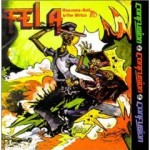
CK: Fela’s the shit man, he’s very fucking groovy.
One time I partied with Fela – one of my great crusty old guy rock stories. Some friends of mine put on a show down in Tucson, and it was Jimmy Cliff and Fela, right? Jimmy Cliff was first, and that was totally great. It was like, wow, Jimmy Cliff! Then fucking Fela, who I was so into, you know. It’s just like, oh my God, I couldn’t believe he was actually coming to Tucson. He’s a real person? It’s just like this little musical elf to me, you know?
The show was just like, oh God! Afterwards, friends of mine were like, “Fela wants to get stoned.” I’m like, you’re shitting me. I was definitely loaded for bear, you know. I mean that’s why they’d come to me, because because I always had really good pot. I was just like, well Fucking A! So I go back and smoked pot with the dude. He’d take these big huge hits. Already at the time he had to be in his fifties. He was just in really good shape, just weirdly like a little strange dude. He’d do these isometric breathing exercises around his pot hits, and hold them in for really long, and I was like, wow, you know? Finally I’m like, you know what, I’ve got to get your autograph, dude. And I don’t give a fuck about autographs or anything, but I was like, fuck, it’s fucking Fela. And he an ink pad and gave his thumb print, which resonated with “yes, I am your imperial master.”
It was just trippy, you know? It was in Tuscon, and Phoenix is a couple of hours from Tucson. So I snatched out a bud for the ride home and gave him the rest of it – I’d found some really fucking nice buds. For me, that was special, right? Because there’s so few artists that I really get a fucking jolt out of meeting. And that was one of them. Somebody like Zappa, where it’d have just been like, oh my God, you’re Frank Zappa. Are you actually a person? Fela was like that.
Then years later, we’re working out in L.A. in a studio, and fucking Prince came into the studio. He’s got these dudes with him and shit, it’s, like, Prince, you know? And he was dressed really nice, and had these high heels on, and his hair… it’s like, God damn dude, you know? That was Prince. Then he goes into his studio, then next thing coming blasting out of the wall and through the door you hear Fela. Fela’s one of those artists who it’s like, does anybody else know about this guy? Is it something that only I’m into? Then you realize that, no, of course not. Still it’s so special to hear Prince blasting it – it was cool. You know, I dig Fela. Fela’s really cool, you know?
All that shit gets back to Brother James, you know? You can’t forget Brother James. Put James Brown on the list of all the artists that are like, oh my Lord. And Fela’s definitely coming from that. But I love the inclusion of the afro-weirdness those people took. That’s bitching music to get into, getting into some of the funky stuff that comes out of Africa. Some of those bass players are so cool. There’s this Paul McCartney kind of a vibe to it, in it that it’s picked and kind of mid-rangey and punchy in a really nice way, and then there’s the inclusion of just how big a part percussion plays in African music. Some of those players are just sick. Then the little dika-dika-dika guitar stuff, kind of a James Brown kind of funk, but then these linear kind of things, [sings] babba-yay-babba-yo-la-bolla-babba-yay, you know the shit they got going on, and like nick-a-bol-nick-a-bol-a-nick-a-doo. Wow, fucking cool. Just completely different. I love that kind of shit.
The same way I dig indigenous music. Something like, Balanese Ghamelan. The music that sprang up from this particular region on the planet because over there they eat a lot of… whatever the fuck, you know? And the sun rises in a particular way there. And the music they needed to make like this.
JM: When was this with Fela?
CK: A long time ago, probably the 80’s. It was well before he died. One of my true favorites that I actually met and hung out with. I’m just not that kind of a guy, you know, to give that huge of a fuck. But there’s some people who are so special to me, they’re like elves to me. It’s like, wow, bigfoot really is real. Or, hey look, a unicorn.
One time we went to see George Jones and my wife fucking hands him a card. We snuck down to the front row. I was so into him. She took a little Meat Puppets business card, and I wrote on it “George, we love you” and she jumps up on stage and hands it to him. He takes it and looks at it, and he goes “get out of town by ten-o-clock.” I was just squirming.
Then the addendum to that story is that years later I’m in fucking prison, you know one of the times that I went to prison, and this friend of mine writes me and goes “I went to see George last night, and I wound up on his bus afterwards. Just me, him, his wife, and this friend of his.” And it’s like, what? There ain’t no justice.
JM: Any final thoughts?
CK: You’ve pretty much scraped my soul clean.
JM: By the way, I think that you need to get Lindsay Lohan to sing background vocals on one of the Meat Puppets’ tracks.
CK: Funny enough that you should mention that, because she has joined the band. She’s sticking mostly to the woodwinds. Britney is coordinating our on- and offstage habberdashery.
JM: Just don’t let them drive your van. Say, my real job is beckoning me.
CK: Thanks, Jeff, that was fun as fuck.
[Now, the edited MOJO-length version:]
JM: What music are you currently grooving to?
CK: I don’t really listen to anything, I don’t have the wherewithal to. I lost everything. I became a um, so I don’t have anything. I listen to the sound of my own breathing, my toe nails growing, the lint collecting in my somewhat gray and wrinkled navel.
JM: What, if push comes to shove, is your all time favorite album?
CK: Oh, jeez, when push comes to shove, dude, I just start swinging. One particular album? Whatever is the latest thing by Lindsay Lohan.
JM: What was the first record you ever bought, and where did you buy it?
CK: The first record, I don’t really remember. I wasn’t into music that much as a kid. What turned me on to music, playing it specifically, was seeing the movie “Deliverance” when I was 12. The bluegrass sequence in that… I was just taken.
JM: Which musician, other than yourself, have you ever wanted to be?
CK: Lindsay Lohan. Because she’s Britney Spears’ girlfriend. Who would I want to be music-wise? Garth Brooks, who has made a fucking bucketload of money. Who has ever made a bucketload of money and managed to not fucking spend it all on dope?
JM: What do you sing in the shower?
CK: I don’t shower. Shower? Is that what that thing is? You mean my extra large toilet? My man-sized toilet?
JM: What’s your favorite Saturday night record?
CK: Fuck, I don’t fucking know. That’s one of those kinds of questions where it’s like, ask my publicist. Maybe something by Fela Kuti, Elvis, or George Jones.
JM: And your Sunday morning record?
CK: Sundays, of course, are reserved for body disposal after the carnage of the night before.

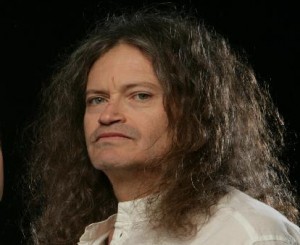
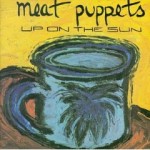

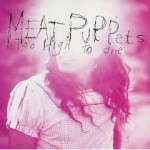
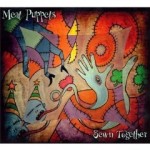

Hey Cris,
I met your Mother on a flight from Omaha to Phoenix via DFW in 1986ish. She was sooo.. proud of her boys for being in the “Meat Puppets” and she was really sweet. I grew up in Omaha and the Renstrom mansion was always much cooler than the Witherspoon mansion across the street, which has since burned down. Hope all is well. You Rule!